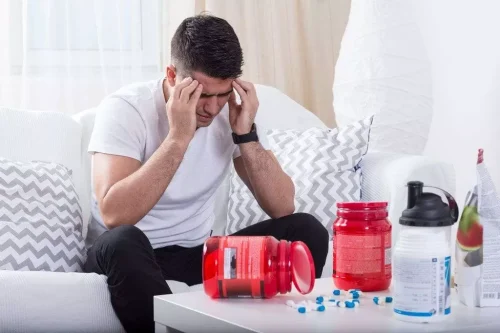
Counseling should ideally continue until the problem is resolved or at least until it becomes manageable. The duration of counseling may also be dictated by the number of sessions that an individual’s insurance company will pay for. The best method will depend on the circumstances surrounding the individual’s case. Residential rehab involves “checking in” to a residential facility, either a discrete and isolated wing of a larger hospital or health complex or a standalone facility.
Develop a Structured Schedule
It also covers the symptoms of withdrawal that you might experience and some of the effective treatment options that are available. People who have a substance use disorder often find that overcoming it is more challenging than they expected. They may feel that addiction is a myth and they can quit any time they want or that they are an exception to the rule.
5 myths about using Suboxone to treat opioid addiction
Examples include Alcoholics Anonymous, SMART Recovery, and other programs. Your peers can offer understanding and advice and help keep you accountable. You doctor also can refer you to a treatment center https://ecosoberhouse.com/ or experts who can help. The duration and intensity of these withdrawal symptoms can vary from person to person. For some, it might be a few days of discomfort before they start to feel more balanced.
If you slip, return to your plan.

Milder cases — when people abuse alcohol but aren’t dependent on it — are as well. As you embark on your journey towards digital wellness, be patient with yourself. Old habits die hard, and it’s natural to experience setbacks along the way. Celebrate your successes, no matter how small, and learn from your slip-ups.
- But in some alcoholics, withdrawal is not just unpleasant—it can be life threatening.
- Harm reduction recognizes that while total abstinence is the goal, it is a process that takes time.
- Don’t lie or cover things up to protect someone from the consequences of their drinking.
- If they drink, ask them to support your recovery by not doing so in front of you.
- Delirium tremens (DTs) is a serious condition that some people struggling with alcohol withdrawal go through.

Millions of readers rely on HelpGuide.org for free, evidence-based resources to understand and navigate mental health challenges. Please donate today to help us save, support, and change lives. Alcohol recovery is a process—one that often involves setbacks. A drinking relapse doesn’t mean you’re a failure or that you’ll never be able to reach your goal. Each drinking relapse is an opportunity to learn and recommit to sobriety, so you’ll be less likely to relapse in the future. Lean on close friends and family – Having the support of friends and family members is an invaluable asset in recovery.
- This forms part of the cycle of alcohol addiction and contributes to the intensity of cravings.
- Peer support groups, which are not led by trained professionals, may benefit some individuals as part of the recovery process.
- If you turn to alcohol to manage emotional distress, the added overwhelm can prompt the urge to drink, making success seem even more out of reach.
Practice Healthy Living
A number of health conditions can often go hand in hand with AUD. Common mental health conditions that co-occur with AUD are depressive disorders, anxiety disorders, trauma- and stress-related disorders, other substance use disorders, and sleep disorders. Studies show that people who have AUD are more likely to suffer from major depression or anxiety over their how to overcome alcoholism lifetime. When addressing drinking problems, it’s important to also seek treatment for any accompanying medical and mental health issues. The first two types of centers offer full-time inpatient rehab services, outpatient services, and partial hospitalization. Many people with alcohol use disorder struggle with dehydration and nausea during withdrawal.

Who should be on the intervention team?


